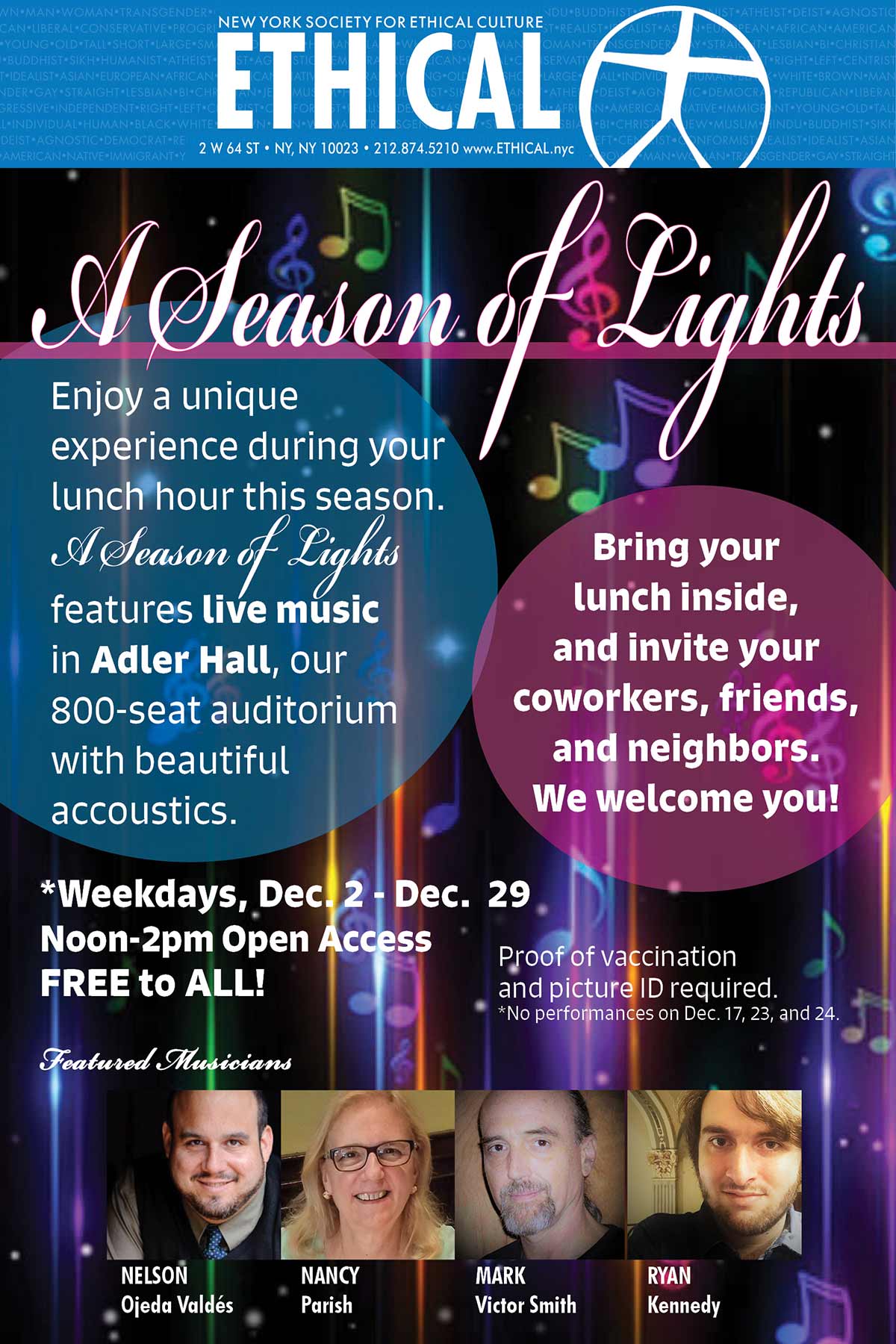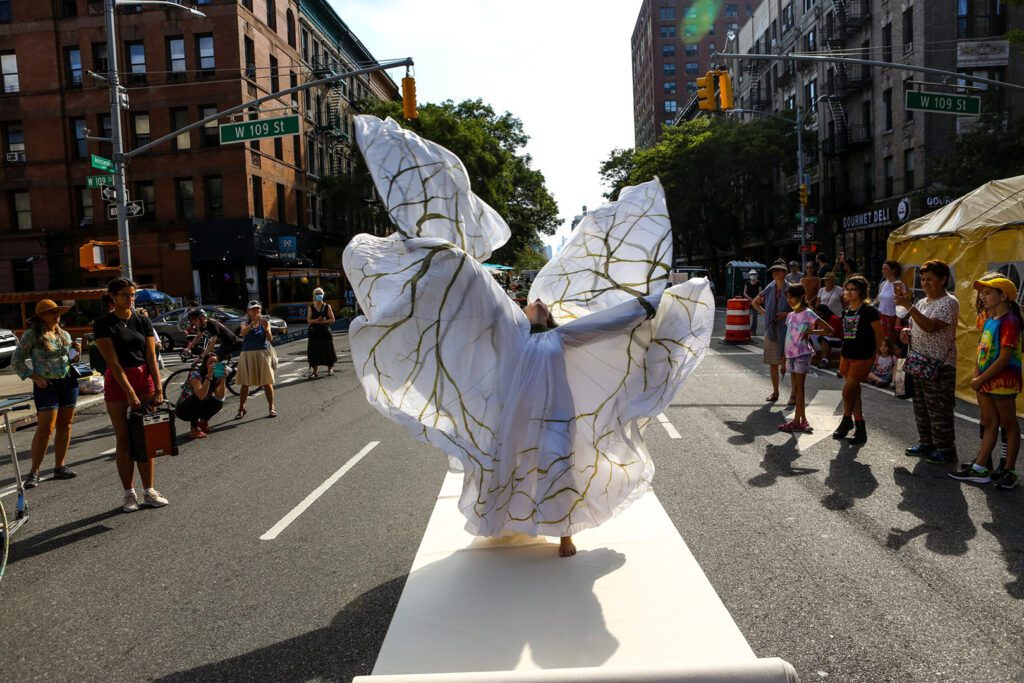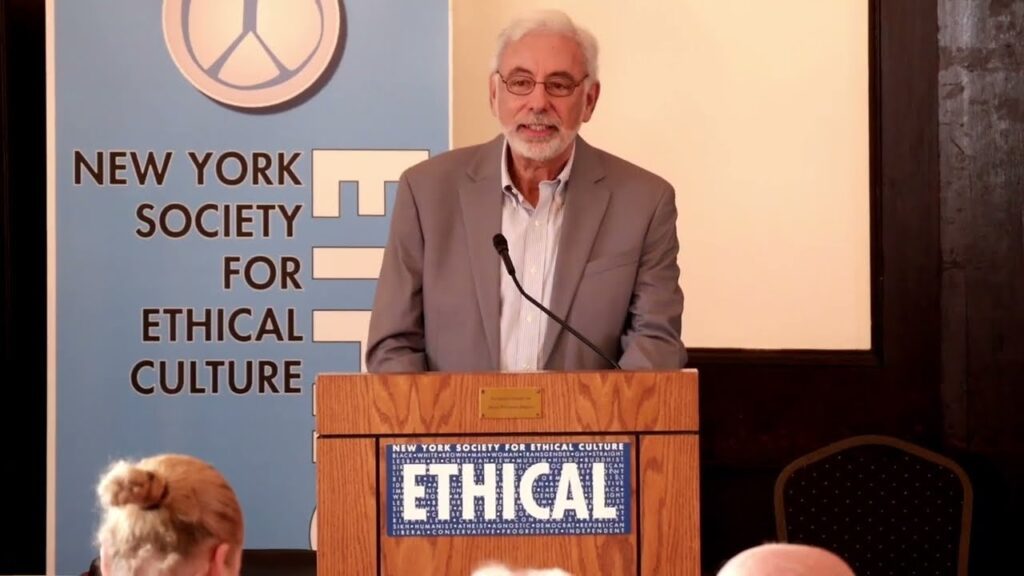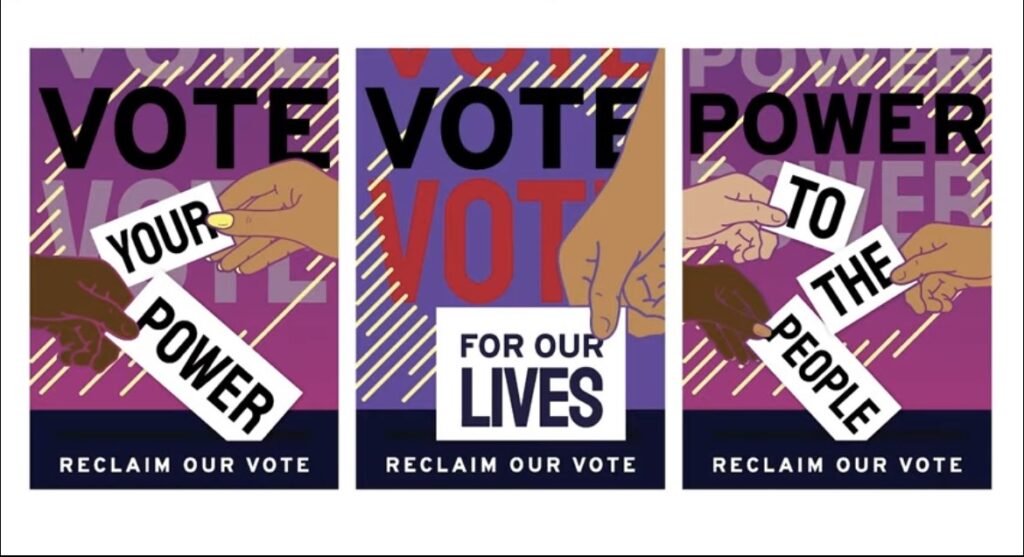
There are seasons in human affairs, of inward and outward revolution, when new depths seem to be broken up in the soul, when new wants are unfolded in multitudes, and a new and undefined good is thirsted for. There are periods when…to dare is the highest wisdom.
— William Ellery Channing
I must be getting older because I can hardly believe December is upon us with its frenzied excitement and its religious celebrations—from Buddha’s enlightenment to Solstice and Hanukkah, to Christmas and Kwanzaa. I have become one of those people who say “But wait! Where did the year go?” Not in a curmudgeonly manner, but of legitimate amazement that another 12 months has flown by, that another calendar is on its last page and here I am!
This year, we’re doing something different here at Ethical: we’re planning on opening of Adler Hall for two hours most weekdays and inviting folks in to hear a variety of musicians playing our organ. This will be from 12noon to 2 pm and we’re hoping people who work in the area or who are just passing by will stop in and eat their lunch while they listen to the music. We’re calling this “Season of Lights” in recognition of all the holidays that celebrate light in some ways during this season.
The Channing quote above seems especially poignant for this time of the year. We come to the longest day and the earliest shopping opportunity. We light the festal lights and go to holiday parties, and it can be so easy to skip the bigger questions: What do these holidays mean? What am I supposed to be learning here? How can I slow down enough to at least be mindful that another minute, another hour, another day has passed—even if I can’t tell you all the details of the story that went with them?
We call this the holiday season, but Channing refers to seasons as having a broader sense of purpose. Perhaps this year we can look at the Christmas story of a homeless teen giving birth in the Red Cross shelter to a baby who would grow up to challenge the unjust systems and structures of his day, who would couch his revolution in the languages of the law and religion that both governed over and oppressed the peoples of the land. How can that story of inward and outward revolution speak to us? In which areas of our lives—whether personal, professional, or spiritual—are revolutions fomenting, under the surface at the moment, but sure to erupt soon, and how can we embrace those revolutions as part of our evolution rather than as rabble-rousing that is upsetting our comfortable status quo?
What if we looked at the Hanukkah story, the bravery of the Maccabees in fighting the Greeks for the spiritual and cultural foundation of their people, as an outward revolution that also led to new depths being plumbed in the soul; even though there was not enough oil, it lasted as long as it was needed. In what area of our life do we feel as if we can’t succeed, don’t have enough, are on our last legs, and how can we find the courage, like the Maccabees, to just keep going back to the jar that should be empty and discovering that in the very act of seeking, we find enough for what we need. We discover new depths in our soul that we would have never known existed if not for going back to an empty place to seek again.
And what if we viewed Kwanzaa not just as an African American holiday, but as a ritual borne out of multitudinous new wants for a better life, for more respect; as a ritual borne out of the realization that it is up to us to define our values and claim our heritage in such a way as to live from our highest self?
Finally, what if Bodhi Day, the anniversary of Buddha’s enlightenment (December 8, on which some Buddhists celebrate Gautama’s attainment of enlightenment under the Bodhi tree at Bodhgaya, India) was seen as that hallmark moment in the Buddha’s life when a new and undefined thirst for goodness brought enlightenment? Where are we simply accepting the injustices of our world, in our own lives, and our own complicity in them? What goodness, if we let our hearts open to the possibility of it, could we thirst for—new and yet undefined, not knowing how it will all turn out, just knowing that we thirst for that goodness, and that gives us the courage to see how it can unfold if we let our lives take root in the thirst?
As we go to the parties, as we do last-minute shopping—online or in brick and mortar stores, as we struggle with loss or depression more poignantly felt at the holidays, let us resolve not to let this holiday season to pass by in a blur, nor to ignore it in our humanist hubris; rather, let us take time to seek the wisdom of each of these holidays and go even further: let us dare to be changed by revolutions within our hearts and in our world; let us dare to plumb the depths of our soul, rather than stopping when we think we’ve gone as far as we can; let us acknowledge our desires and our wants even if they seem unreachable; let us open our jaded, arid spirits up to a thirst for goodness—nascent and unknowable as that might be. Let us dare to live into the wisdom of this season of our human lives. Happy Holidays!







